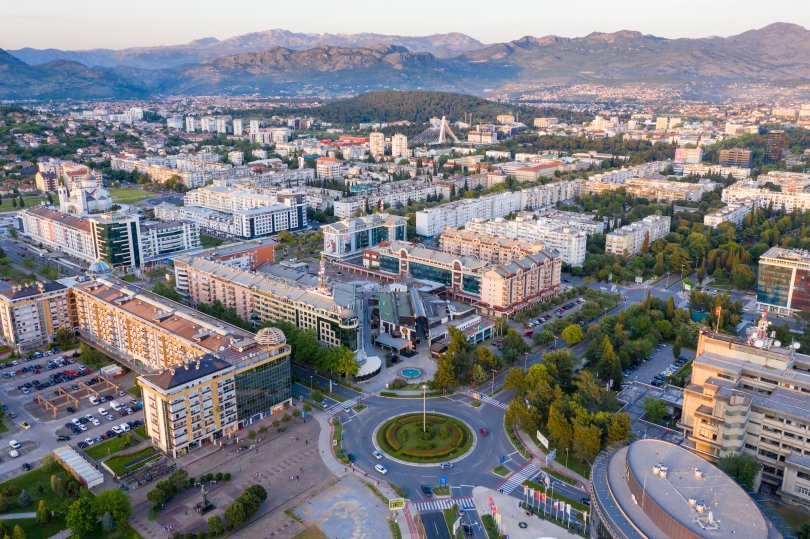
Montenegro
The European Training Foundation (ETF) cooperates with and complements the work of the European Commission and the European External Action Service in its support to Montenegro, which includes assistance to the Delegation of the European Union to Montenegro, contributing to EU-Montenegro bilateral policy dialogue.
The ETF is actively supporting the implementation of actions in the Osnabrück Declaration in the region, in close cooperation with its sister agency Cedefop. The Osnabrück Declaration sets out policy actions for the 2021–25 period, in support of the Council Recommendation on vocational education and training (VET) for sustainable competitiveness, social fairness and resilience. The national implementation plan for Montenegro describes how the country plans to address EU priorities and achieve its national objectives in VET.
The ETF also gives inputs to EU policy monitoring mechanisms, including the Economic Reform Programme, training and employment policy, assessment of progress on the Small Business Act for Europe and wider human capital developments reported in the Torino Process. Montenegrin actors are encouraged to participate in European platforms and dialogue processes, including the ETF Quality Assurance Platform.
The ETF provides policy advice on the VET dual system and skills development together with awareness raising for the adoption of the EU self-assessment tool SELFIE in schools to support digital readiness and competence development. It supports the gathering of intelligence on skills needs, monitoring of labour-market intelligence and skills relevance, and the professional development of teachers and trainers.
Read our 2024 update on Key policy developments in education, training and employment (ETF, 2024). For a quick overview, see below:
2024 developments at a glance
🏛️ Political landscape and EU membership progress: in 2024, Montenegro stabilised its political context following a period of changing Governments. This helped the country move ahead on its EU integration journey, notably with the fulfilling of the Interim Benchmarks on Rule of Law;
✅ Boosting participation in early years education: the Strategy and Action Plan for Early and Pre-school Education (2021-2025) continues to help increase participation in early childhood education. The current participation rate stands at 81.5%, moving closer to the 87% EU target;
👩🎓 Educational initiatives and policies: the launch of the Education Strategy – shaped by national consultations, EU support, and collaboration with UNICE – represents a significant step forward. In parallel the Digital Classroom project, funded by the European Investment Bank, will deliver digital content and equipment, marking further progress in the modernisation of the education sector;
🏫 Vocational education and training (VET): the VET Strategy 2020-2024 and Action Plan 2024 were developed to improve VET by aligning skills, competences, and qualifications more closely with labour market needs. This includes rolling out ten new initial VET (IVET) programmes in 2023/2024. The next phase is currently in the planning. For adult learners, the VET Centre continues to implement the Strategy for Adult Education 2015-2025;
🛠️ Work-based learning (WBL): dual education expanded in 2023/2024, with 463 students enrolled, up from 410 in the previous year. While institutional support for WBL continues to grow, improvements to the funding model are still needed to reduce dropout rates among students and companies notably in the third year of training;
💼 Labour market developments: unemployment dropped to 13.1%, reflecting improved labour market conditions, although long-term employment remains a critical issue. Skills mismatch is an ongoing challenge with an oversupply of business studies and humanities graduates and a shortage of STEM and medical professionals. The National Employment Strategy (2021-2024) and its Action Plans were set up to target these key issues and boost employment in disadvantaged areas;
👦 👧 Youth in focus: in Montenegro, 20.3% of young people are classified as NEETs (Not in Employment, Education or Training). The EU supported Youth Guarantee Implementation Plan (2024-2025) is to be piloted at the municipal level, aiming to enhance the successful transition from education to employment;
🌿 💻 Green and digital skills development: digital education improved, with 52% of individuals possessing basic digital skills, nearing the EU-27 average of 55%. However, digital literacy gaps remain, particularly among low-educated individuals and rural communities. Infrastructure upgrades are underway in line with the Digital Classroom project and the Education System Digitalisation Strategy (2022-2027). Additionally, the Eco-schools initiative and new green economy VET curricula have been introduced, underscoring the country’s commitment to promote sustainability in education.
Priorities for 2025
👉 Next steps have been taken to implement the Action Plan linked to the Education Strategy, ensuring it runs in parallel with the EU Accession Process.
👉 Further roll-out of the Youth Guarantee, with a focus on outreach via the Ministry of Labour, the Ministry of Education, and the Employment Agency of Montenegro.
👉 Establish mechanisms to evaluate practical learning in VET and higher education and expand work-based learning opportunities with employers.
